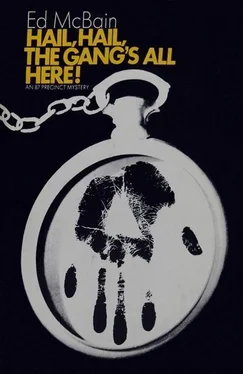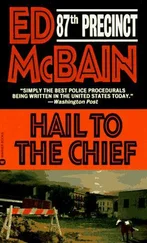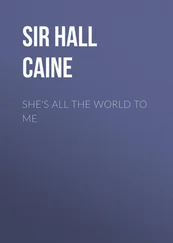“The store hasn’t been burglarized, has it?” Flora asked. Her voice was somewhat throaty. She sounded very much like a torch singer holding the mike too close to her lips.
“No, no,” Willis assured her. “We merely want to ask about some articles of clothing that may have been purchased there.”
“Thank heavens,” Flora said. Frieda had come down from the kitchen and stood now behind Flora’s wingback chair, her hand delicately resting on the lace antimacassar just behind her partner’s head.
“We’ve been burglarized four times since we opened the store,” Frieda said.
“Each time they’ve taken, oh, less than a hundred dollars worth of merchandise. It’s ridiculous. It costs us more to replace the broken glass each time. If they’d just come in the store and ask for the damn stuff, we’d give it to them outright.”
“We’ve had the locks changed four times, too. That all costs money,” Frieda said.
“We operate on a very low profit margin,” Flora said.
“It’s junkies who do it,” Frieda said. “Don’t you think so, Flora?”
“Oh, no question,” Flora said. “Hasn’t that been your experience?” she asked the detectives.
“Well, sometimes,” Willis said. “But not all burglars are junkies.”
“Are all junkies burglars?” Frieda asked.
“Some of them.”
“Most of them?”
“A lot of them. Takes quite a bit of money to support a habit, you know.”
“The city ought to do something about it,” Flora said.
The cat near the fireplace stirred, stretched, blinked at the detectives, and then stalked out of the room.
“Pussy’s getting hungry,” Flora said.
“We’ll feed her soon,” Frieda answered.
“What clothes did you want to ask about?” Flora said.
“Well, primarily a jacket you had in the window last week. A fur jacket with—”
“The llama, yes, what about it?”
“With an orange sun painted on the back?” Genero said.
“Yes, that’s it.”
“Would you remember who you sold it to?” Willis asked.
“I didn’t sell it,” Flora said. She glanced up at her partner. “Frieda?”
“Yes, I sold it,” Frieda said.
“Would you remember who bought it?”
“A boy. Long blond hair and a mustache. A young boy. I explained to him that it was really a woman’s coat, but he said that didn’t matter, he thought it was groovy and wanted it. It has no buttons, you realize, so that wasn’t any problem. A woman’s garment buttons differently...”
“Yes, I know that.”
“This particular coat is held closed with a belt. I remember him trying it with the belt and then without the belt.”
“Excuse me,” Genero said, “but is this a coat or a jacket?”
“Well, it’s a short coat, actually. Mid-thigh. It’s really designed for a woman, to go with a miniskirt. It’s about that length.”
“I see.”
“I guess a man could wear it, though,” Frieda said dubiously.
“Do you know who the boy was?”
“I’m sorry, I don’t. I’d never seen him before.”
“How much did the coat cost?”
“A hundred and ten dollars.”
“Did he pay for it in cash?”
“No, by... oh, of course.”
“Yes?” Willis said.
“He gave me a check. His name would be on the check, wouldn’t it?” She turned to Flora. “Where are the checks we’re holding for deposit tomorrow?” she asked.
“Upstairs,” Flora said. “In the locked drawer.” She smiled at the detectives and said, “One drawer in the dresser locks. Not that it would do any good if someone decided to break in here.”
“Shall I get it for you?” Frieda asked.
“If you would,” Willis said.
“Certainly. The tea must be ready, too.”
She went out of the room. Her tread sounded softly on the carpeted steps leading upstairs.
“There was one other item,” Willis said. “Dick, have you got that blouse?”
Genero handed him a manila envelope. Willis unclasped it and removed from it the black silk blouse they had found on Scott’s bathroom floor, the police evidence tag dangling from one of its buttons. Flora took the blouse and turned it over in her hands.
“Yes, that’s ours,” she said.
“Would you know who bought it from you?”
Flora shook her head. “I really couldn’t say. We sell dozens of blouses every week.” She looked at the label. “This is a thirty-four, a very popular size.” She shook her head again. “No, I’m sorry.”
“Okay,” Willis said. He put the blouse back into the envelope. Frieda was coming into the room with a tray upon which was a teapot covered with a cozy, four cups and saucers, a milk pitcher, a sugar bowl, and several sliced lemons in a low dish. A check was under the sugar bowl. Frieda put down the tray, lifted the sugar bowl, and handed the check to Willis.
A name and an address were printed across the top of the check:
ROBERT HAMLING
3541 Carrier Avenue
Isola
The check was made out to the order of The Monkey Wrench for one hundred thirty-five dollars and sixty-eight cents; it was signed by Hamling in a broad, sprawling hand. Willis looked up. “I thought the coat cost a hundred and ten dollars. This check—”
“Yes, he bought a blouse as well. The blouse cost eighteen dollars. The rest is tax.”
“A black silk blouse?” Genero asked.
“Yes,” Frieda said.
“ This one?” Genero asked, and pulled the blouse from its envelope like a magician pulling a rabbit from a hat.
“Yes, that’s the blouse,” Frieda said.
Genero nodded in satisfaction. Willis turned the check over. On the back of it were the penned words “Drivers Lic” and the numbers “21546 68916 506607-52.”
“Did you write this?” Willis asked.
“Yes,” Frieda answered.
“He showed you identification, I take it.”
“Oh yes, his driver’s license. We never accept checks without proper identification.”
“Can I see that?” Genero asked. Willis handed him the check. “Carrier Avenue,” Genero said. “Where’s that?”
“Downtown,” Willis answered. “In The Quarter.”
“What do you take in your tea, gentlemen?” Flora asked.
They sat sipping tea in the living room streaming with sunlight. Once, during a lull in the small talk over their steaming cups, Genero asked, “Why’d you name your store The Monkey Wrench?”
“Why not?” Frieda answered.
It was clearly time to go.
The curious thing about fishing in the sewer for those Halloween masks was that it filled Brown with a sense of exhilaration he had not known since he was a boy. He could remember a hundred past occasions when he and his childhood friends had removed an iron sewer grating and climbed down into the muck to retrieve a rubber ball hit by a stickball bat, or an immie carelessly aimed, or even now and then a dime or a quarter that had slipped from a clenched fist and rolled down into the curbside drain. He was too large now to squeeze through the narrow opening of the sewer, but he could see at least one of the masks some five feet below him, resting on the pipe elbow in a brownish paper-littered slime. He stretched out flat on the pavement, head twisted away from the curb, and tried to reach the mask. His arm, as long as it was, was not long enough. His fingertips wiggled below, touching nothing but stagnant air. He got to his feet, brushed off the knees of his trousers and the elbows of his coat, and then looked up the block. Not a kid in sight. Never a kid around when you needed one. He began searching in his pockets. He found a paper clip holding a business card to one of the pages in his pad. He removed the clip, put the card into his wallet, and then took a sheaf of evidence tags from his inside jacket pocket. Each of the tags had a short length of string tied through a hole at one end. He unfastened the strings from ten tags, knotted them all together, and came up with a five-foot-long piece of string. He opened the paper clip so that it resembled a fishhook and then tied it to one end of the string. Weighting the line with the duplicate key to his station house locker, he grinned and began fishing in the sewer. On the twentieth try, he hooked the narrow piece of elastic clipped to the mask. Slowly, carefully, patiently, he reeled in his line.
Читать дальше












